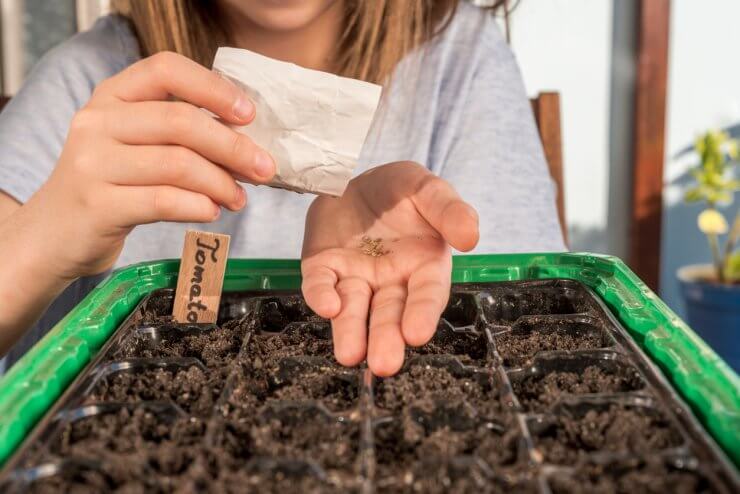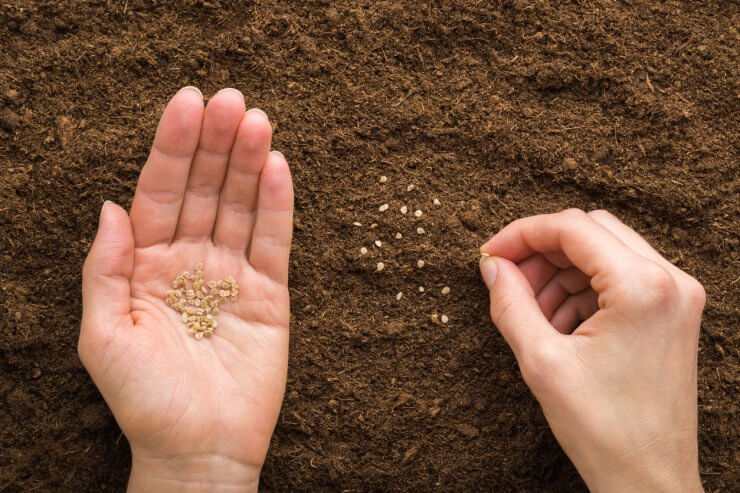
You’ve probably seen those Little Free Library stands around where you can borrow or leave a book. One near me has some fantastic books; the entire Lord of the Rings series was in there not too long ago. As much as I love books, though, the idea of starting a seed library is far more appealing.
If you already save and share seeds with your friends, and especially if you have a community of thrifty gardeners, starting a seed library seems like a logical next step. In fact, seed libraries, or seed banks as they are sometimes called, have a long history dating back to the early days of agriculture. Seed saving and sharing were common until a few decades ago, when large agricultural businesses became the norm.
There’s a vast and interesting history there regarding laws, lawsuits, and large agricultural corporations. Monsanto has sued hundreds of farmers, claiming patent infringement. It was only in 2015 that Minnesota became the first state to exempt “noncommercial seed sharing” from permitting and labeling requirements. California’s “Seed Exchange Democracy Act” was signed into law in 2016 to promote community seed saving and sharing. That’s another topic for another time, but it is an interesting path of inquiry if you’re thinking about starting a seed library.
But let’s move on to the reason you’re here: tips to make your seed exchange a reality.
Discover 7 top tips for growing, harvesting, and enjoying tomatoes from your home garden—when you access the FREE guide The Best Way to Grow Tomatoes, right now!

Your guide to starting a seed library in your neighborhood
Starting a seed library will take some work and energy on your part, but ultimately, it should be a fun, community-building project. Beyond that, there is no single best way to go about it. There are, however, some tips that will make the process more organized and enjoyable. This first tip is especially valuable.
1. Keep it simple. A seed library doesn’t need to be fancy. It could be as low-tech as a water-tight plastic container.
2. Involve your community. Many hands make the work light. It’s not just sharing the work, though. By definition, starting a seed library is about community. Take advantage of your fellow gardeners’ knowledge and experience (and seeds!) to create a rich collection.
3. Consider the location. You want something both accessible to people, but also dry and safe from critters that might enjoy munching on a collection of seeds, such as birds, mice, or even insects.
4. Consider the library structure. Those Little Free Libraries for books are out there in the open. Anyone can walk by, browse the titles and take a book or two or three. Similarly, anyone can leave books. Can you do the same with seeds? Sure. Do you want to? Maybe. Some seed libraries are housed in traditional community libraries. Others are more like exchanges that open on certain days and times. There is no “right” way to structure your seed library. It really depends on what kind of support you have, how you want to interact with your community, and similar details.
5. Pack the seeds. You’ll need at least a small supply of seeds as you’re starting a seed library. Depending on the size of the seeds, most exchanges place about a dozen seeds in small envelopes that they then label accordingly.
6. Label, label, label. While it might be easy to tell the difference between a pumpkin seed and tomato seed, good luck telling the difference between a Whittemore tomato seed and a Green Zebra tomato seed.
7. Categorize your seeds. With all the varieties of vegetables and plants out there, it’s helpful to categorize your seeds. Some seed libraries divide them into seeds and plants that are easy to grow and difficult to grow. You can also divide them into hybrid or heirloom, alphabetically by plant (i.e., Okra, Heirloom Clemson Spineless, open-pollinated, grows 3-5′ tall. Okra, Baby Bubba Hybrid, grows 3-4′ tall. Okra, Heirloom Burgundy, grows 3-5′ tall.)
8. Track your incoming and outgoing seeds. Again, you don’t need to get too complicated here. Even a simple ledger where people can write down what they bring in or take out will help you track which seeds are most popular and how many people are using your seed library.
9. Turn your library into a book library. If you’re starting a seed library, you’ll likely (hopefully) get a lot of interested people who don’t have much gardening experience. You will also hopefully have experienced gardeners who are willing to help and share information, but there’s no guarantee the two parties will meet one another. It’s not a bad idea to keep a small collection of gardening resources for people to browse through.
10. Assess. Reassess. Adapt. As your seed library grows (bada bing!), the scope and purpose may change. You may find that your community is especially interested in organic seeds, heirloom seeds, or plants and vegetables that are more suited to container and balcony gardens. This is promising! You want your seed library to take on a life of its own and become a place rooted in community.
Starting a seed library can be an excellent way to meet your neighbors, nearby gardeners, and expand your own collection of gardening skills and seed selection.
Have you thought about starting a seed library? What tips would you add to this?
Discover 7 top tips for growing, harvesting, and enjoying tomatoes from your home garden—when you access the FREE guide The Best Way to Grow Tomatoes, right now!




